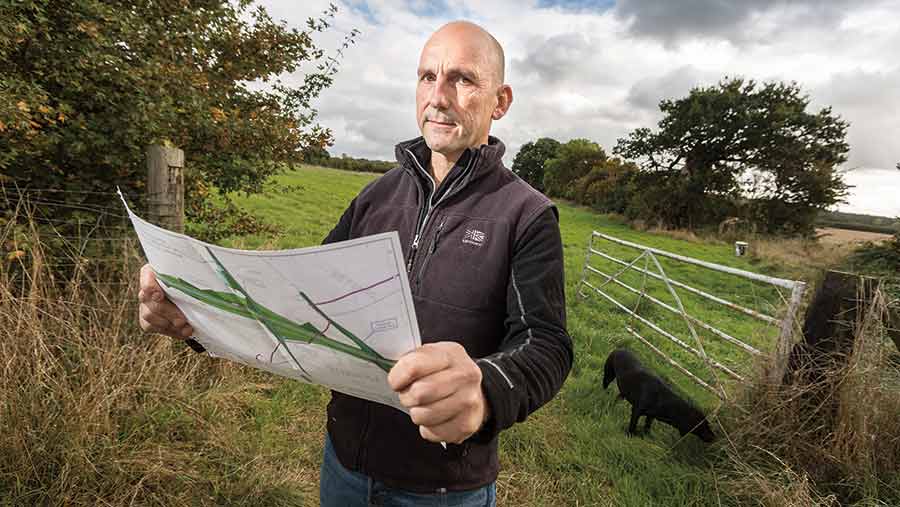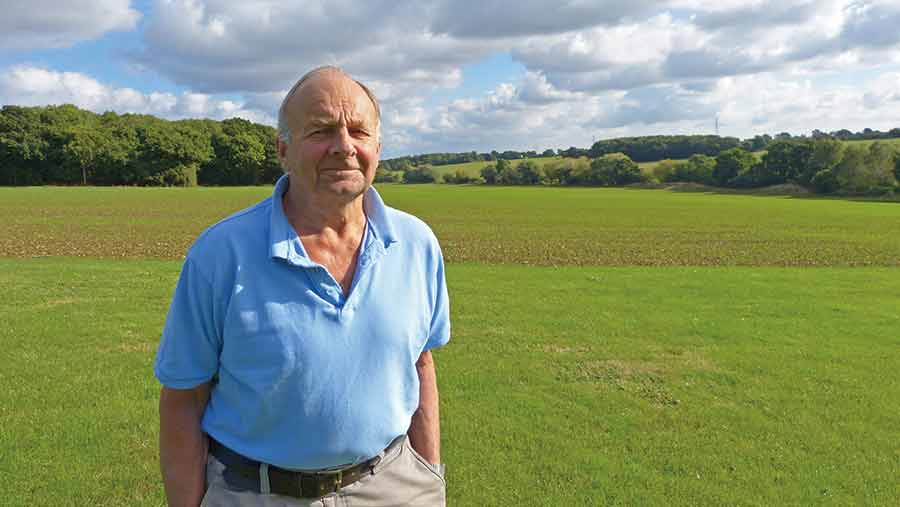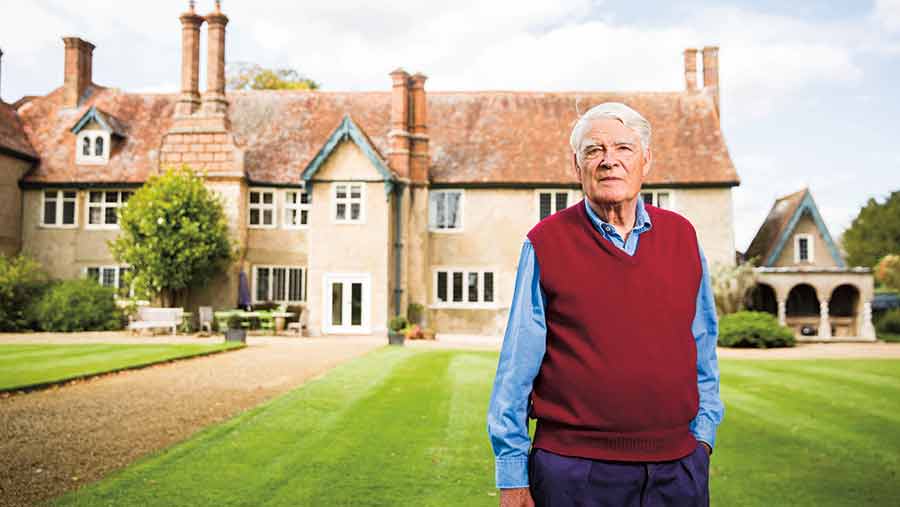The farmers fighting compulsory purchase
Hundreds more farmers face the emotional and financial upheaval of compulsory purchase orders, as the government pushes through more schemes. We talk to some of those affected.
Compulsory purchase gives the right to take someone’s property against their will. It is one of the most powerful rights to give one person over another, believes CLA chief surveyor Andrew Shirley.
“It is damaging beyond the cold calculations of a numerical compensation value,” he says
See also: Changes to compulsory purchase and what it means for farmers
The NFU’s rural surveyor Louise Staples adds that more needs to be done to lessen the effect of compulsory purchase.
“Acquirers have too much power. There should be a greater understanding that the purchase affects people’s homes, livelihoods and family history.”
“Compensation is supposed to be sufficient to put them back in a position as if the scheme hadn’t happened.
“But it is difficult to do that with just money, because the emotional impact across all of the projects is enormous, as these case studies show,” she says.
James Whitfield, Furzen Hill Farm, Warwickshire
400ha arable farm with four holiday cottages, business units and a livery
Furzen Hill Farm will lose 16ha of land and its income from four holiday cottages will be jeopardised by the HS2 rail link.
But farmer, James Whitfield, says the biggest effect is from the “heartbreak and frustration of having something imposed on you without any involvement or control”.

James Whitfield will lose 16ha of land due to the HS2 development © Richard Stanton
“It is six-and-a-half years since HS2 was announced. Every day since the announcement it has deflected our minds away from running the business of the farm,” says Mr Whitfield.
“Most of that time we haven’t known what is happening or seen detailed plans that affect us.
“I understand why HS2 has acted as it has, but it is so impersonal.”
In addition to the 16ha, a further 24ha will be taken during the two- to three-year construction period.
See also: Compulsory purchase: How landowners can protect their rights
The works surrounding the rail line, which will pass about a quarter-of-a-mile from the farmhouse, will include resiting a major road and constructing a flyover.
“The lack of consultation at an early stage means we haven’t been able to make constructive suggestions that would benefit us and HS2,” says Mr Whitfield.
He has also questioned the siting of an 8m-high soil dump from the construction works. But his request to have it moved was not considered even though it drains on to his land and will be visible from the farm’s holiday cottages.
“In lean years the cottages have provided a steady income. Now we are concerned that the soil dump, road noise and railway will put off potential guests,” says Mr Whitfield.
Peter Headley, Tile Lodge Farm, Kent
385ha arable farm
Ten huge 50m-high pylons will march the entire length of Tile Lodge Farm, bringing power generated in Belgium to the UK.
Farmer Peter Headley explains that the pylons in the Richborough Connection Project are much larger than normal and carry 400,000v of electricity.

Peter Headley
“They will dominate the farm, which is long and narrow and follows a valley,” Mr Headley says.
Compulsory purchase powers mean that during construction an area of 60x60m will be taken around each of the 10 pylons.
A two-mile access corridor will also be driven alongside the line to allow the conductors to be positioned. A temporary roadway will be put in place through the valley and 10 spur roads added to give access to each pylon.
See also: How farmers can cut pollution risk and check insurance cover
The line is sited about 100m from an existing row of 35m-high pylons. These are scheduled for removal later in the five-year construction project.
“We asked for pylons to be sited on the headlands or at least 24m into the fields, so we could get by with our sprayers and combines.
“But frustratingly all of these things were decided before we were consulted and have been rejected,” he says.
Together with the access routes it means the farm has been left with odd-shaped and isolated patches of land, making it impossible for modern-day farm machinery to gain access.
“The upset to farming is going to be huge – not just over the next five years, but for the 100-year lifespan of the pylons,” Mr Headley says.
He is also concerned that the noise from the power lines may be significant.
A designated Site of Special Scientific Interest nearby means the line has been pushed closer to the main farmhouse. One of the pylons will stand just 100m from the farmhouse.
Chris Banham, Chapel Farm, Lincolnshire
240ha arable farm with 20ha permanent pasture for 140 cattle

Chris Banham
Concerns over Basic Payment Scheme losses and disruption to farming practise have caused Lincolnshire farmer Chris Banham sleepless nights.
Cables carrying the power generated by turbines in the North Sea Triton Knoll wind farm come ashore and cross 11ha of Chapel Farm.
The process will take three to four years as a trench is dug to carry the line.
A 4ha field will be used as an equipment compound and a narrow strip will be taken down the side of a 15ha field.
“The trench will be left open for three years until cables have been tested,” Mr Banham explains.
At certain points test pits will be left open with minor cables coming off the main power line. These will be made permanent and covered with large concrete slabs.
“As it is, we face huge disruption over the next few years. Access tracks and trenches have cut parts of the farm into almost unworkable triangles and patches.”
But it is the BPS entitlement issue that is yet to be broached under negotiations.
“We will not be able to claim for the 27 acres of land taken from us and we don’t know how the compensation for that works,” he says.
Because the land will not be farmed, Mr Banham will have to sell the entitlements and then reacquire them when the land is restored.
“This is a disruption that people don’t think about. At the very least maps will have to be redrawn and our application will be made more complex.”
Chris Prideaux, The Doddershall Estate, Buckinghamshire
560ha mixed farm
The Doddershall Estate will be affected by more than 1.5 miles of the proposed London-to-Birmingham high-speed rail link (HS2) and also the East West Rail Scheme.
The estate’s lodge is planned to be demolished and the proximity of the line to the 500-year-old, Grade 2* listed dwelling will blight one of the most important historic buildings on the route, explains Will Taylor of Bidwells, which is acting for the estate.There is also a Grade 2 farmhouse that will be severely affected.

Christopher Prideaux ©Felix Clay
The demolition of the lodge requires a new entrance to the property. Estate owner Chris Prideaux says the entrance requires a planning agreement which HS2 has refused to consider as it falls outside the scope of the parliamentary Bill governing the project.
“Four years after the announcement of the route and we are still uncertain about temporary and permanent land take. The compensation arrangements are unknown and the tax implications have not been addressed,” he says.
Mr Prideaux has questioned the project’s value and its environmental effects.
“It is a waste of agricultural land for a financial failure coupled with environmental damage to European-protected species. Their biodiversity offset plans are not in accordance with Defra policy.
“HS2 and East/West integration plans are incomplete, failing to cover planning issues under the Transport and Works Act. This Act will not be passed until next year, which invalidates the HS2 Bill programme in this area,” says Mr Prideaux.
Ann Bonham, Dodds Farm, Buckinghamshire
21ha beef farm
Doubt and uncertainty have dogged Ann Bonham’s small farm since it was the subject of a compulsory purchase order by both HS2 and the proposed East-West Rail Scheme.
In what her agent Bidwells describe as an extremely difficult and impractical situation, HS2 has proposed siting a balancing pond – to control drainage – exactly where East West Rail has planned to put in a resited access to the farm.
Both proposals have for months been planned on the assumption the other scheme was not in existence. The crossover makes it difficult to understand which plans demonstrate the effect on the holding, says Bidwells rural surveyor Vicky Phillips.
Farm owner Ann Bonham adds she was shocked when she learned HS2 wanted to take 2.7ha during a three-year construction phase and almost a hectare permanently.
Then East-West Rail stated it would be putting in a bridge over the existing railway. The plan would also remove a level crossing, which Ms Bonham uses. A new road would be sited through another field to link up with existing routes.
In all, 8ha of land will be taken up, some temporarily, during a five-year construction process.
“My farm will be cut to pieces and moving cattle will no longer be a simple short walk over the crossing. The distance will be three times longer and [they will] have to be carried using a truck and trailer,” says Ms Bonham.
Not knowing what is being decided and a lack of clear timescale is almost the worst part, she says.
“In the meantime, how do I plan? What happens if I want to sell? And who would want to buy the farm with this hanging over it anyway?”
